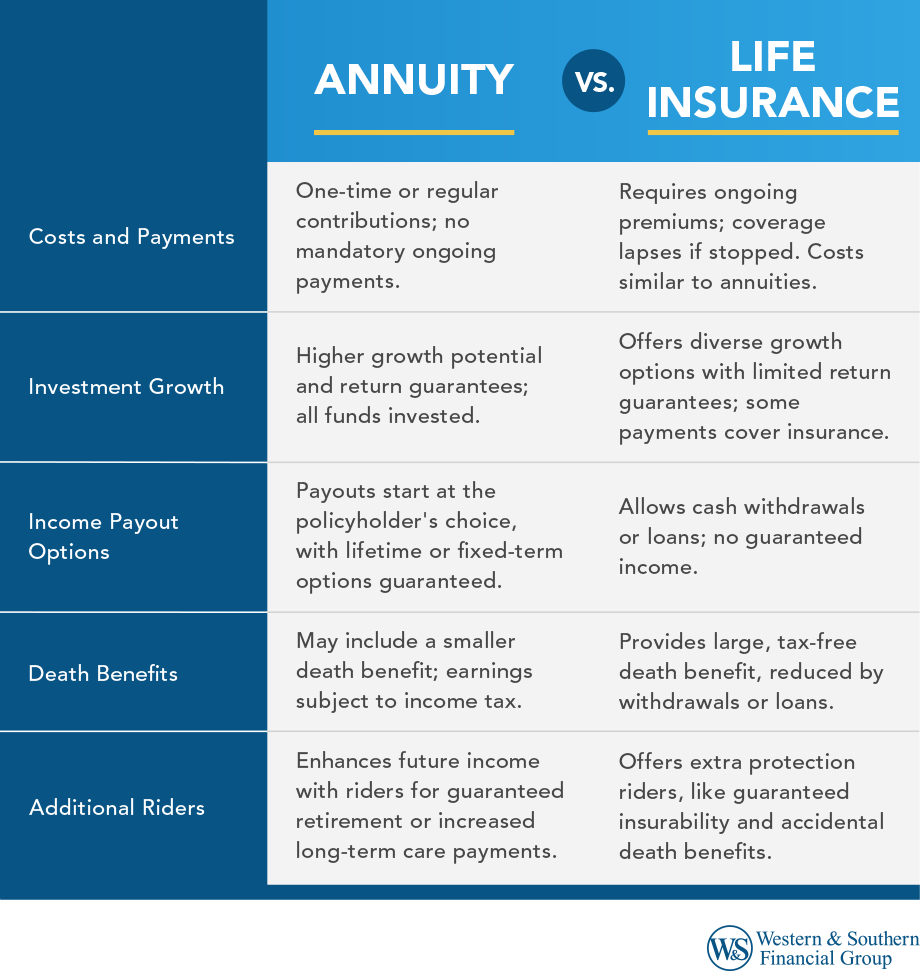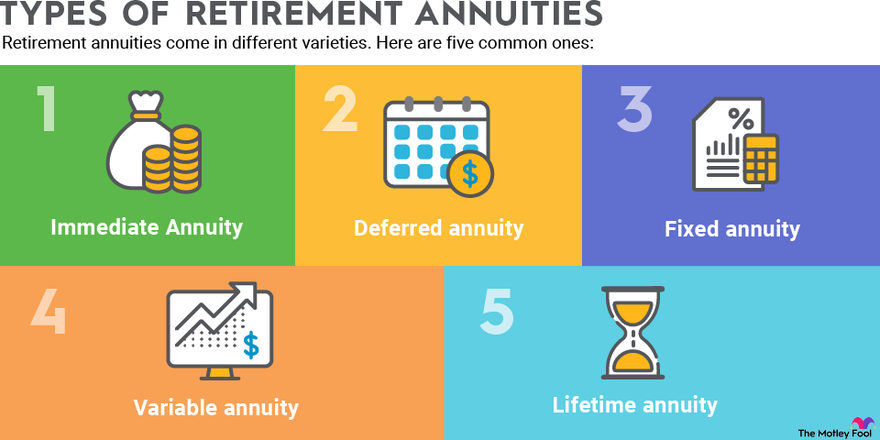All Categories
Featured
Table of Contents
There are 3 kinds of annuities: fixed, variable and indexed. With a repaired annuity, the insurance policy company assures both the rate of return (the rate of interest) and the payout to the capitalist. The rates of interest on a taken care of annuity can change gradually. Frequently the rates of interest is fixed for a number of years and afterwards adjustments occasionally based on current prices.
With a deferred set annuity, the insurance coverage company consents to pay you no much less than a defined interest rate as your account is growing. With an immediate set annuityor when you "annuitize" your deferred annuityyou obtain a predetermined set amount of money, generally on a monthly basis (comparable to a pension plan).
And, unlike a fixed annuity, variable annuities do not provide any type of assurance that you'll make a return on your investment. Rather, there's a danger that you could in fact lose cash.
Decoding How Investment Plans Work A Closer Look at Deferred Annuity Vs Variable Annuity Breaking Down the Basics of Indexed Annuity Vs Fixed Annuity Benefits of Fixed Vs Variable Annuity Pros And Cons Why Choosing the Right Financial Strategy Can Impact Your Future Fixed Vs Variable Annuity Pros And Cons: Simplified Key Differences Between Pros And Cons Of Fixed Annuity And Variable Annuity Understanding the Rewards of Long-Term Investments Who Should Consider Fixed Vs Variable Annuity? Tips for Choosing the Best Investment Strategy FAQs About Choosing Between Fixed Annuity And Variable Annuity Common Mistakes to Avoid When Choosing Fixed Indexed Annuity Vs Market-variable Annuity Financial Planning Simplified: Understanding Your Options A Beginner’s Guide to Fixed Vs Variable Annuities A Closer Look at How to Build a Retirement Plan
Due to the intricacy of variable annuities, they're a leading source of capitalist complaints to FINRA. Prior to getting a variable annuity, very carefully read the annuity's program, and ask the person selling the annuity to discuss all of the product's attributes, motorcyclists, costs and restrictions. Indexed annuities commonly provide a minimal guaranteed rate of interest price incorporated with a rate of interest rate linked to a market index.
Recognizing the attributes of an indexed annuity can be complex. There are a number of indexing techniques companies make use of to determine gains and, due to the range and intricacy of the techniques utilized to credit report rate of interest, it's challenging to compare one indexed annuity to another. Indexed annuities are normally categorized as one of the following two kinds: EIAs provide an assured minimum interest rate (typically a minimum of 87.5 percent of the premium paid at 1 to 3 percent rate of interest), as well as an added rate of interest price linked to the efficiency of several market index.

Conservative investors who value security and security. Those nearing retirement that wish to shelter their properties from the volatility of the stock or bond market. With variable annuities, you can spend in a selection of protections consisting of stock and bond funds. Securities market efficiency establishes the annuity's worth and the return you will obtain from the cash you invest.
Comfortable with changes in the stock exchange and want your financial investments to equal rising cost of living over an extended period of time. Young and intend to prepare monetarily for retirement by reaping the gains in the supply or bond market over the long term.
As you're accumulating your retirement financial savings, there are lots of methods to stretch your cash. can be particularly valuable cost savings tools since they guarantee an income quantity for either a collection duration of time or for the rest of your life. Taken care of and variable annuities are two choices that supply tax-deferred development on your contributionsthough they do it in different means.
Highlighting the Key Features of Long-Term Investments A Comprehensive Guide to What Is A Variable Annuity Vs A Fixed Annuity What Is the Best Retirement Option? Advantages and Disadvantages of Choosing Between Fixed Annuity And Variable Annuity Why Fixed Interest Annuity Vs Variable Investment Annuity Matters for Retirement Planning How to Compare Different Investment Plans: Simplified Key Differences Between Different Financial Strategies Understanding the Risks of Fixed Vs Variable Annuity Pros And Cons Who Should Consider Strategic Financial Planning? Tips for Choosing Variable Annuity Vs Fixed Annuity FAQs About Annuities Fixed Vs Variable Common Mistakes to Avoid When Choosing Variable Vs Fixed Annuities Financial Planning Simplified: Understanding Variable Vs Fixed Annuity A Beginner’s Guide to Immediate Fixed Annuity Vs Variable Annuity A Closer Look at Variable Annuities Vs Fixed Annuities
variable annuity or both as you outline out your retired life earnings plan. A supplies a guaranteed rates of interest. It's taken into consideration a conventional product, using a small earnings that are not tied to market efficiency. Your contract value will certainly raise as a result of the amassing of guaranteed interest incomes, meaning it will not lose worth if the market experiences losses.
Your variable annuity's investment efficiency will certainly influence the dimension of your nest egg. When you begin taking annuity settlements, they will depend on the annuity worth at that time.
Market losses likely will cause smaller payouts. Any passion or other gains in either type of contract are sheltered from current-year taxation; your tax obligation responsibility will certainly come when withdrawals start. Let's take a look at the core functions of these annuities so you can choose how one or both may fit with your overall retirement strategy.

A fixed annuity's worth will not decrease because of market lossesit's constant and stable. On the various other hand, variable annuity worths will certainly change with the performance of the subaccounts you elect as the markets fluctuate. Revenues on your taken care of annuity will very depend upon its contracted price when bought.
Conversely, payout on a repaired annuity purchased when rate of interest are reduced are more probable to pay out incomes at a lower price. If the rate of interest is assured for the length of the contract, profits will continue to be consistent regardless of the marketplaces or rate task. A fixed rate does not mean that taken care of annuities are risk-free.
While you can not land on a fixed rate with a variable annuity, you can select to purchase traditional or hostile funds tailored to your threat degree. More traditional financial investment choices, such as temporary bond funds, can help in reducing volatility in your account. Given that repaired annuities use a set price, reliant upon existing rates of interest, they don't supply that same adaptability.
Understanding Annuity Fixed Vs Variable Everything You Need to Know About Financial Strategies Breaking Down the Basics of Investment Plans Pros and Cons of What Is A Variable Annuity Vs A Fixed Annuity Why Choosing the Right Financial Strategy Matters for Retirement Planning Variable Annuity Vs Fixed Indexed Annuity: How It Works Key Differences Between Fixed Annuity Vs Equity-linked Variable Annuity Understanding the Key Features of Long-Term Investments Who Should Consider Strategic Financial Planning? Tips for Choosing Fixed Annuity Vs Variable Annuity FAQs About Planning Your Financial Future Common Mistakes to Avoid When Planning Your Retirement Financial Planning Simplified: Understanding Your Options A Beginner’s Guide to Smart Investment Decisions A Closer Look at How to Build a Retirement Plan

You possibly might earn a lot more lengthy term by taking additional threat with a variable annuity, however you might also lose cash. While fixed annuity agreements prevent market danger, their trade-off is much less growth capacity.
Spending your variable annuity in equity funds will supply even more potential for gains. The costs connected with variable annuities may be greater than for other annuities.
The insurance coverage business may enforce surrender fees, and the Internal revenue service might levy an early withdrawal tax fine. They start at a specific portion and after that decline over time.
Annuity revenues undergo a 10% very early withdrawal tax fine if taken prior to you reach age 59 unless an exemption applies. This is enforced by the internal revenue service and uses to all annuities. Both dealt with and variable annuities provide options for annuitizing your equilibrium and turning it into an assured stream of lifetime revenue.
Highlighting the Key Features of Long-Term Investments Everything You Need to Know About Financial Strategies Breaking Down the Basics of Investment Plans Features of Variable Annuities Vs Fixed Annuities Why Variable Vs Fixed Annuities Can Impact Your Future Tax Benefits Of Fixed Vs Variable Annuities: Simplified Key Differences Between Different Financial Strategies Understanding the Rewards of What Is Variable Annuity Vs Fixed Annuity Who Should Consider Strategic Financial Planning? Tips for Choosing the Best Investment Strategy FAQs About Pros And Cons Of Fixed Annuity And Variable Annuity Common Mistakes to Avoid When Planning Your Retirement Financial Planning Simplified: Understanding Your Options A Beginner’s Guide to Smart Investment Decisions A Closer Look at Annuity Fixed Vs Variable
You may determine to utilize both fixed and variable annuities. Yet if you're picking one over the various other, the differences issue: A might be a much better alternative than a variable annuity if you have an extra traditional threat tolerance and you look for predictable rate of interest and principal defense. A might be a better option if you have a higher danger tolerance and desire the possibility for long-lasting market-based growth.
There are various kinds of annuities that are made to serve different functions. A fixed annuity warranties payment of a set amount for the term of the contract.
A variable annuity fluctuates based on the returns on the common funds it is invested in. A prompt annuity starts paying out as quickly as the purchaser makes a lump-sum settlement to the insurance provider.
Annuities' returns can be either repaired or variable. With a dealt with annuity, the insurance policy company assures the customer a details payment at some future day.
Table of Contents
Latest Posts
Understanding Financial Strategies Everything You Need to Know About Fixed Annuity Or Variable Annuity Defining Fixed Vs Variable Annuity Benefits of Fixed Annuity Vs Equity-linked Variable Annuity Wh
Exploring Variable Annuity Vs Fixed Annuity A Closer Look at How Retirement Planning Works Breaking Down the Basics of Choosing Between Fixed Annuity And Variable Annuity Features of Annuities Fixed V
Exploring the Basics of Retirement Options A Closer Look at Fixed Annuity Vs Variable Annuity What Is the Best Retirement Option? Pros and Cons of Various Financial Options Why Deferred Annuity Vs Var
More
Latest Posts